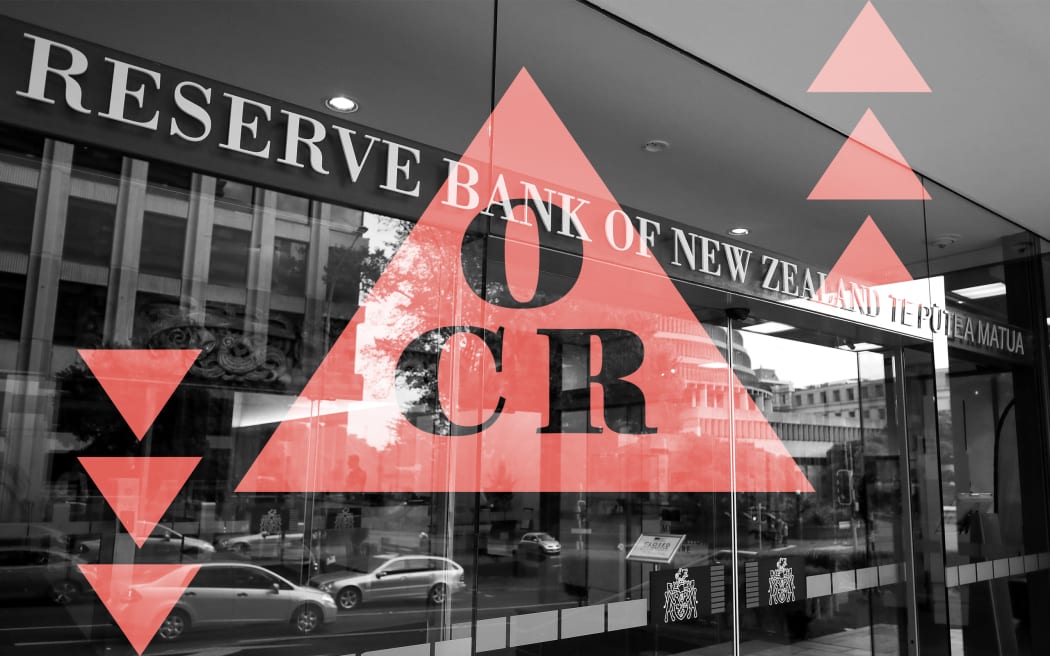
Photo: RNZ
An official cash rate cut might be cause for celebration for under-pressure borrowers - but there is a reminder that it has been prompted by "extraordinary weakness" in the economy that may still be yet to fully hit.
Council of Trade Unions chief economist Craig Renney said he felt like he was "taking crazy pills" after the OCR announcement on Wednesday.
He said people celebrating the cut were not acknowledging the dire economic conditions that prompted the Reserve Bank to pull it forward by a full year.
The bank now expects unemployment to peak at 5.4 percent, representing an extra 10,000 out-of-work compared to its May forecast.
It expects the country to have been in recession through the middle two quarters of this year, and for gross domestic product to remain smaller for a year.
Renney said that was something that had not been recorded since the global financial crisis.
He said for inflation to meet the Reserve Bank's forecast - it expects the annual rate to fall from 3.3 percent in the June quarter to 2.3 percent in the September quarter - consumption would have to be "absolutely smashed".
"Long story short, it's a hot mess ... it feels a bit like celebrating you've saved a toe on one leg but you've lost the other leg."
He said it was not evident where any future growth would come from, either.
"The only thing would be the dollar could fall so fast it could encourage export-led consumption but that's a function of whether other countries are growing at the same time and the evidence from China and others is that that's not happening."
Infometrics chief forecaster Gareth Kiernan said the tone of May's Reserve Bank update had been "blatantly wrong" and it had course-corrected - although he said whether the bank had really woken up to what was happening in the economy remained to be seen.
He said his conversations with clients had indicated softening demand since April, and that had got worse in recent weeks.
"The economy is struggling and will struggle more if there's not relief in terms of either interest rates, fiscal policy or an improving global economy coming through shortly. The global economy and fiscal policy aren't going to change much - if anything, the global situation might get a bit weaker."
He said growth was likely to flirt with either side of zero for some time to come. With migration and population growth slowing, that increased the risk of outright GDP falls.
Previously, a larger population had helped to boost growth, even though it fell sharply on a per capita basis.
He said the Reserve Bank's September inflation pick was a bold call.
But he said he had heard from some businesses that had earlier said they were less willing to pass on price increases and risk losing market share, now saying they were having to fight so hard for business that they were almost discounting.
"That's a whole other level of disinflation that might be coming through."
Kiernan said there were likely to be 12 months of "pretty difficult and patchy" economic conditions ahead.
Apart from the slow progress of rate cuts, there was little else to help turn the economy around, he said.
BNZ chief economist Mike Jones said the updated forecasts reflected "extraordinary weakness" being seen in the economy.
"At a high level, the RBNZ forecasts have the economy crawling along the bottom of the business cycle for the rest of this year, before things start to stabilise early next year. That's pretty similar to our own view of the cycle."
Kiwibank economist Sabrina Delgado said there was a risk that inflation continued to come in higher than the Reserve Bank expected - but she said it could still be underestimating unemployment levels.





